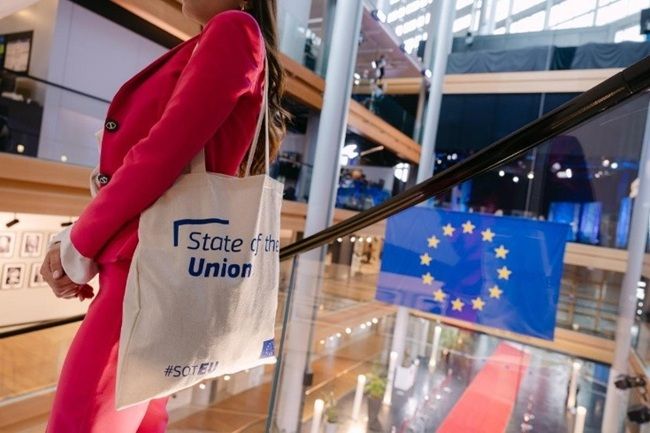SOTU - State of the Union 2025: What was in it for construction?


On 10 September, the President of the European Commission, Ursula von der Leyen, delivered the first State of the Union (SOTU) address of her new mandate in the European Parliament in Strasbourg.
After the European elections in summer 2024 and the new European Commission taking office in December, the address took stock of first achievements and presented the priorities for the year ahead. Security and the Russian war of aggression in Ukraine are still on top of the agendas, together with the fight against the housing crisis, and the ambitious simplification agenda to strengthen the competitiveness of European businesses.
President von der Leyen made clear that the reconstruction of Ukraine remains a key topic for the EU and its Member States. The European construction industry is a key interlocutor in these efforts, and we therefore support the idea of a Reparations Loan for Ukraine.
In terms of housing, the figures sadly speak for themselves. Prices are up by more than 20% since 2015, with building permits down by over 20% in five years. This is indeed more than a housing crisis, and difficulties in the housebuilding segment continue. Access to affordable, adequate, and energy-efficient housing is getting more and more difficult. Total costs have been identified as a main challenge, including the costs of construction, lengthy permitting procedures, and financing conditions. Addressing public and private financing schemes is key to making energy renovations and new construction affordable and accessible. We therefore welcome the announcement by President von der Leyen to swiftly deliver the European Affordable Housing Plan and to set up a first-ever EU Housing Summit. We will closely follow related developments.
The announced Single Market Roadmap to 2028, addressing the five domains capital, services, energy, telecoms, the 28th regime, and freedom for knowledge and innovation could be an important element for strengthening the EU Single Market, which is without any doubt one of the greatest assets Europe has.
The announced Grids Package and new Energy Highways Initiative aim to modernise Europe’s energy infrastructure by removing key bottlenecks. Faster permitting, improved interconnectors, and stronger coordination with governments and utilities will be essential. Construction will play a vital role in delivering the resilient, affordable energy networks Europe urgently needs.
The construction industry also supports plans to introduce a “Made in Europe” criterion in public procurement, which prioritises the European industry in public tenders. Similarly, stronger incentives for partner countries to source from Europe when receiving investments under the Global Gateway is a longstanding demand from the European construction industry. These steps support industrial competitiveness while promoting European standards and expertise in global infrastructure and construction projects.
To secure materials for European industry, we must accelerate the transition to a truly circular economy. The European Commission's proposal for an Industrial Decarbonisation Accelerator Act is scheduled for later this year, focusing on key strategic sectors and technologies to drive this change. Furthermore, Europe remains on track to achieve its 2030 climate target of reducing emissions by at least 55%, and President von der Leyen reaffirmed the EU’s unwavering commitment to environmental sustainability and the broader climate goals.
Read more at this link.

There are no upcoming events.